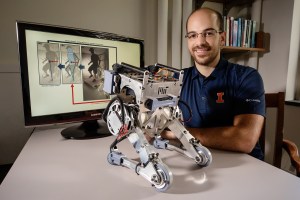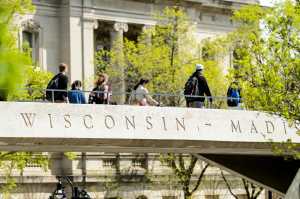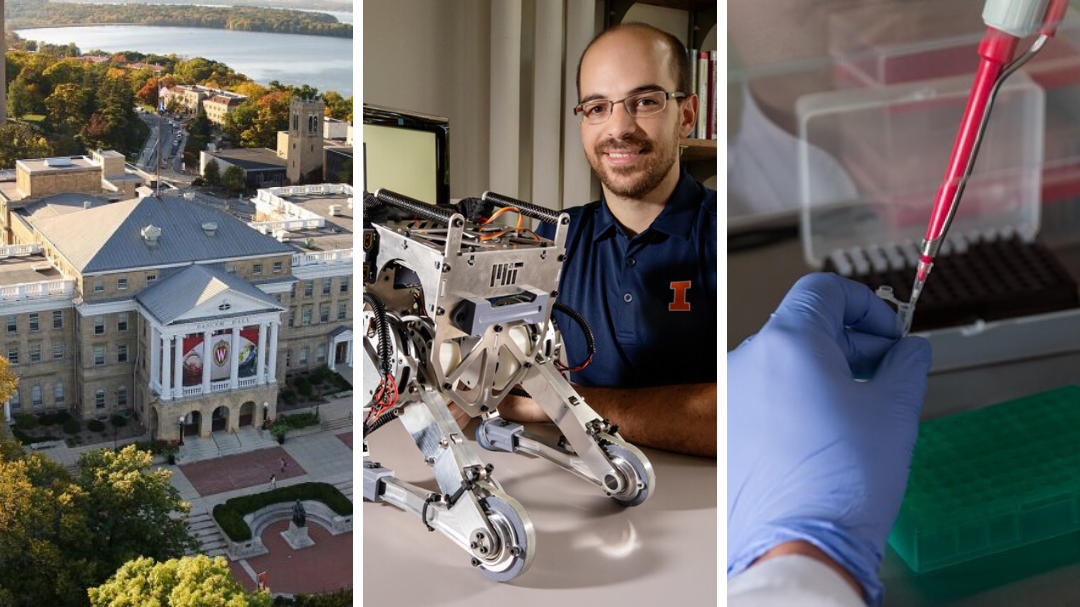John Tolley, November 12, 2019
Every week, BTN LiveBIG?s B1G Bites brings you the latest news from around the conference on the topics of health, environmental issues and economic innovation.
These stories showcase the breadth and depth of research occurring at our 14 member universities. From robotics to recycling, smart agriculture to spirited entrepreneurship, the Big Ten is committed to pushing boundaries that will help build a more prosperous, peaceful, just, clean and healthy future for generations to come.
Remember, these B1G Bites are just the tip of the iceberg. For more, please check out the BTN LiveBIG archives.
Northwestern: Stem cell transplant reverses disabling MS-like disease

A stem cell transplant reversed a debilitating neurological disease that causes half of the patients to go blind and lose the ability to walk five years after diagnosis. Most of the patients stayed better five years after the transplant and were able to avoid drug treatment that cost up to $500,000 yearly, reports a new study from Northwestern Medicine and Mayo Clinic.
The disease is neuromyelitis optica, formerly classified as a rare subtype of multiple sclerosis (MS) but now considered a separate disease. Unlike MS and most other autoimmune disease, neuromyelitis optica has a biological marker, AQP4, that correlates with disease activity. After the stem cell transplant, patients no longer had discernable AQP4 in their blood.
Illinois: Human reflexes keep two-legged robot upright

Imagine being trapped inside a collapsed building after a disaster, wondering if anybody will be brave enough to rescue you. Suddenly, a door bursts open, and standing in the shadows is a robot. But this is not just any robot; this one has quick, humanlike reflexes and is guided by a person from a remote location who feels the same physical forces the robot is experiencing.
Engineers from the University of Illinois and the Massachusetts Institute of Technology are a step closer to human-operated robotics with their two-legged unit, named Little Hermes, which can walk, run, jump and interact with the environment in synchrony with a human operator.
João Ramos, a U. of I. mechanical science and engineering professor and former MIT researcher, collaborated with professor Sangbae Kim at MIT to develop Little Hermes, a small-scale bipedal robot designed to go places deemed unsafe for humans. The researchers report their findings in the journal Science Robotics.
Wisconsin: UW-Madison signs Second Nature Resilience Commitment

Following on the University of Wisconsin-Madison?s recent STARS silver rating for campus sustainability, Chancellor Rebecca Blank has announced that UW-Madison will sign the Resilience Commitment administered by Second Nature. Chancellor Blank made her announcement at the Climate Fast Forward Conference in Madison on Nov. 8, 2019.
Resilience refers to the ability of institutions, infrastructure and communities to prepare for the impacts of climate change. The Resilience Commitment will not only help UW-Madison address current and ongoing effects of climate change on campus, it will also amplify the benefits of collaboration and partnership with local, state and global communities. In this way, the university will bring to bear the Wisconsin Idea on its sustainability efforts.
In her remarks, Chancellor Blank emphasized that the Resilience Commitment reflects a holistic approach to sustainability: ?It?s not only about carbon emissions and climate change, though those are major issues; it?s also about public health, conservation, and environmental stewardship.?







 See what's coming up live on B1G+ every day of the season at BigTenPlus.com.
See what's coming up live on B1G+ every day of the season at BigTenPlus.com. 